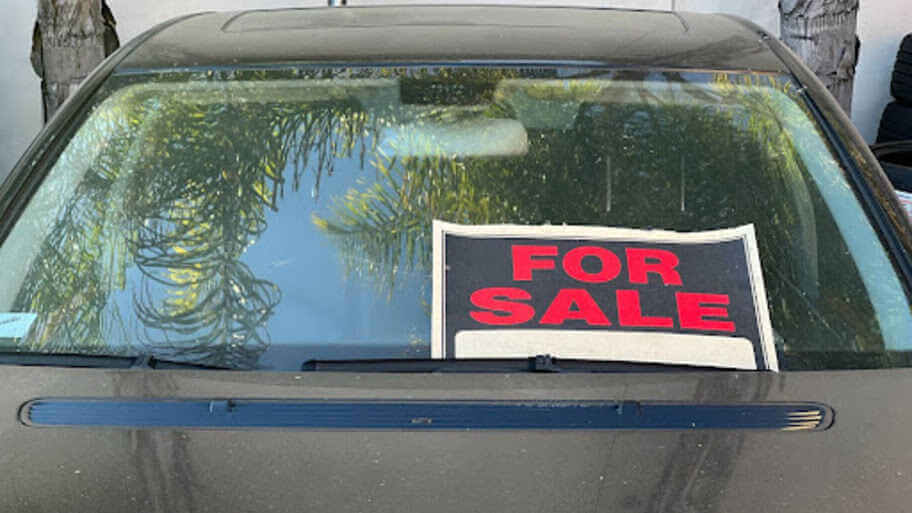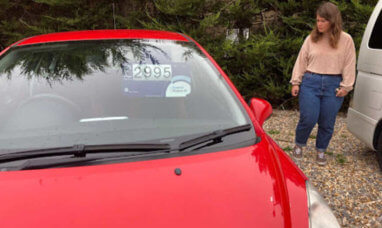How to Write a Bill of Sale for a Car
Sellers commonly use bills of sale when transferring the ownership of a car. If you are buying a used vehicle, you will likely need a car bill of sale before registering it in your state. This legal document proves your legal rights to the car as well as other vital details, such as your name, vehicle identification number, and sale terms.
This article will help you understand how to write a bill of sale for a car, how they work, and other helpful tips.
Car Bill of Sale Overview
Car bills of sale are legal documents used when transferring vehicle ownership from a seller to a buyer. They serve as lawful evidence that the transaction took place and the seller rescinded their legal rights to the asset. Bills of sale for a car laws vary from state to state, which means you should also review your local rules.
Other names for a car bill of sale include:
-
-
- As-is bill of sale
- Proof of payment
- Proof of sale
- Proof of purchase
- Sales receipt
- Sales slip
-
It is worth noting that bills of sale are not sales contracts. A bill of sale for a car is a document you use when selling the vehicle as proof of purchase, whereas a sales contract establishes the terms and conditions of the sale itself.
When to Use a Bill of Sale for a Car
You should use a bill of sale for a car when selling a vehicle to someone else. If you are the buyer, you should discuss getting a bill of sale from the seller. The ultimate purpose of a car bill of sale is to prove that the transaction occurred.
What to Know About Writing a Bill of Sale for a Car
The seller generally drafts the bill of sale for a car, completes it, and presents it to the buyer. However, the writer depends upon how the buyer is purchasing the vehicle. Dealerships or private sellers should draft a bill of sale for the buyer.
There are several options for drafting car bills of sale, including state form templates or writing your own. Let’s take a closer look at both of these options below.
State Form Car Bill of Sale Templates
Many state motor vehicle websites have a template form that you can download and complete. For example, the South Carolina Motor Vehicle Division (SCMVD) in Richland County allows individuals to download Form 403 1 Bill of Sale Affidavit when selling vehicles there.
For good measure, you should review your state or county’s motor vehicle sale and registration requirements. For instance, some states require a notarized bill of sale while others do not. You can avoid unnecessary delays by taking a thorough and measured approach.
Writing Your Own Bill of Sale for a Car
If your state does not provide a bill of sale template, you still have options. Do-it-yourself (DIY) contract drafting is also effective. However, it may require a bit of legal finesse on your part, such as reviewing your state’s bill of sale requirements.
You can also draft a bill of sale by creating a form from the following items:
-
-
- Buyer information: Add a space on your form for the buyer’s name, address, and telephone number.
- Seller information: Add a space on your form for your name and pertinent contact details as in the preceding element.
- Vehicle details: Create another section for vehicle details, such as year, make, model, color, odometer reading, and vehicle identification number (VIN).
- Payment terms: Give yourself plenty of room to write down the sale price and payment methods. Unless you are receiving a lump sum payment, be sure to attach a bill of sale with a promissory note for an automobile in these situations.
- Terms and conditions: Ensure that you include a statement that acknowledges the sale as final and the vehicle sold “as is.” This statement ensures that you are not personally guaranteeing the car’s condition or implying any warranty.
- Signature and date lines: Finally, add signature and date lines for all buyers and sellers. All parties should sign this document, or the buyer will not have the ability to register the car.
- Notary Attestation Section (Optional): If your state requires a notarized bill of sale for a car, you will want to reserve a space for a notary’s attestation.
-
Upon completion, the buyer should receive the original, and the seller should retain a copy. You can also make two copies and have both parties sign them so that everyone has an “original.” Use blue ink when signing a contract so that it is more challenging for a buyer or seller to contest the validity of the document.
Other Necessary Steps for Writing a Bill of Sale
The transaction is not over when you complete the bill of sale, and vehicle ownership does not legally transfer to the buyer until officially recorded with your local motor vehicle department. Most buyers have between 10 and 45 days to register after purchase, so the buyer and seller may want to go to city hall or the courthouse together.
A bill of sale for a car protects you from misunderstandings with the other party, regardless of your side. Even if your county or state does not require a bill of sale, having one is an excellent idea since it only strengths your ownership or selling rights.
More About Notarization
Some motor vehicle departments require a bill of sale for a car, while others do not. Some states even strengthen the transaction further by requiring a notarial signature and seal with a short attestation. Again, if the notarization is unnecessary, you can still add it to your bills of sale to protect the transaction.
More About Bills of Sale With a Promissory Note for an Automobile
Several states require you to include the terms and conditions of a bill of sale associated with a promissory note for an automobile. You must complete this section if your buyer is making installments to you. This section usually includes the terms and conditions of the payment, name of title companies, principal balance, and more.
Featured Image: Twenty20








